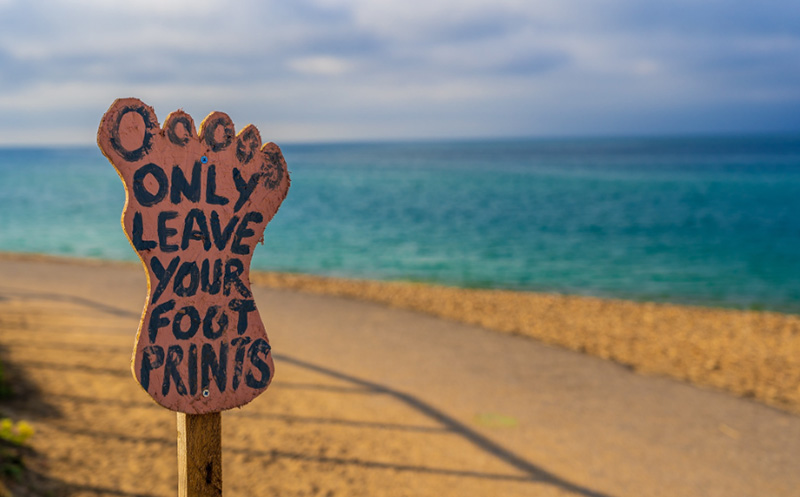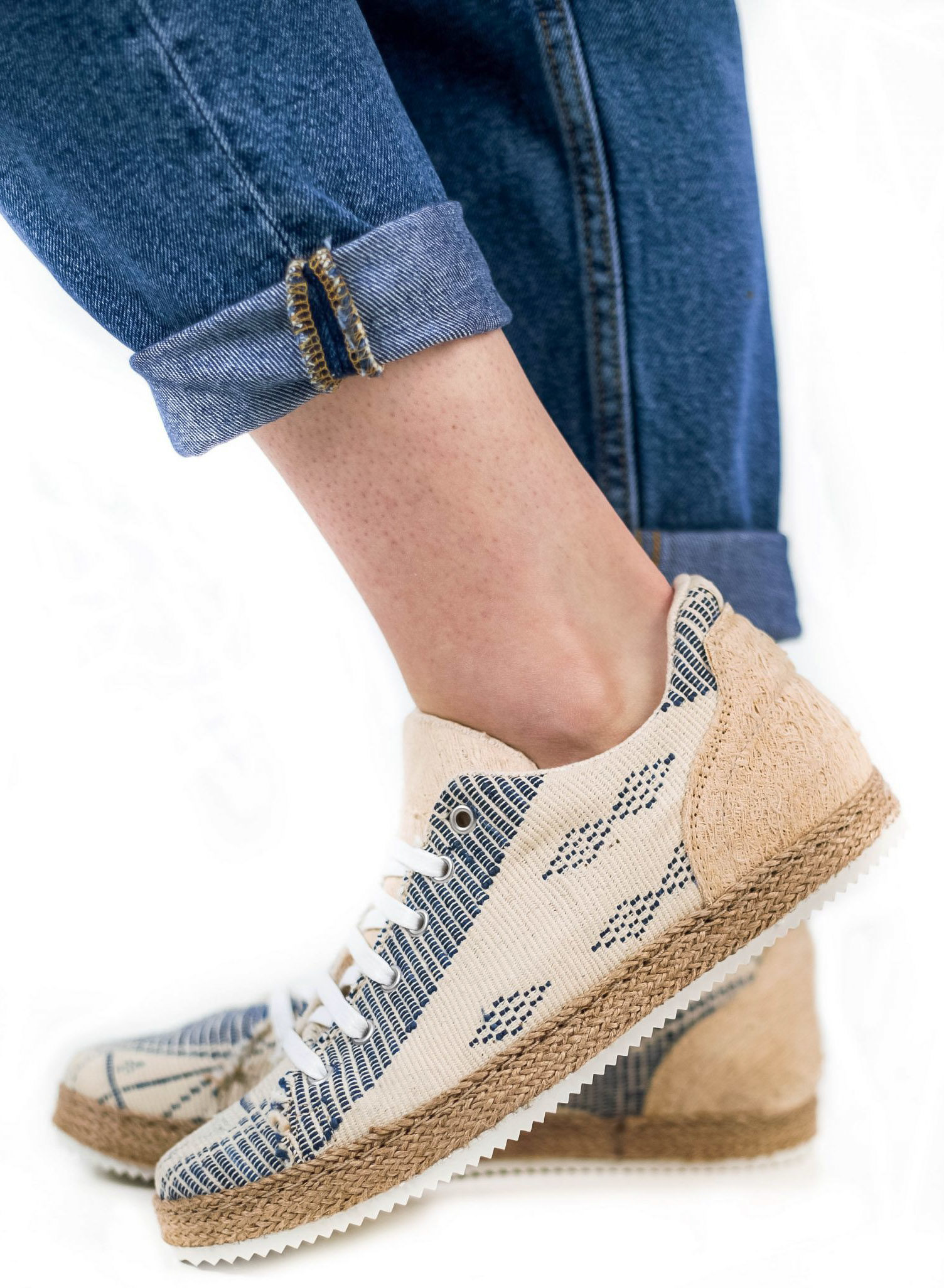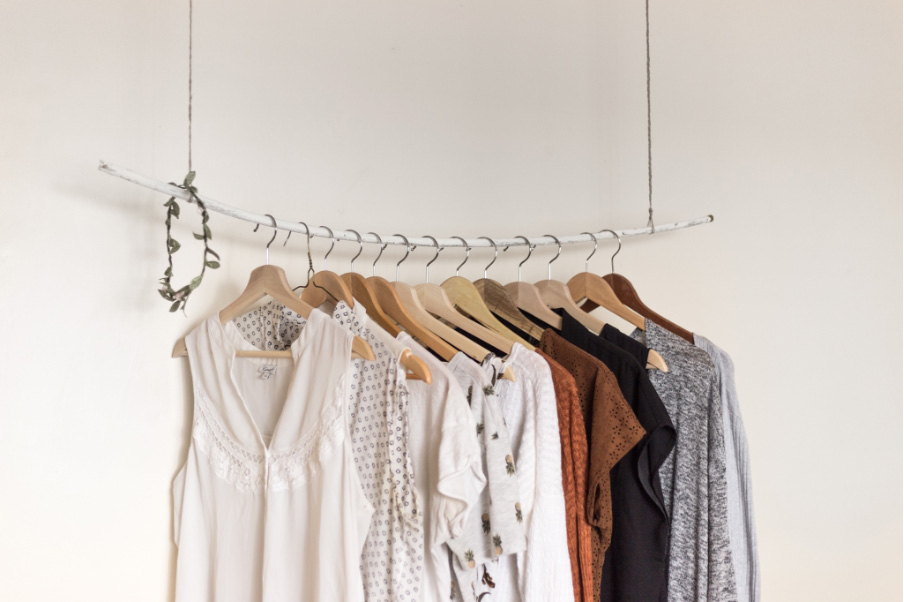
5 tips for having a responsible wardrobe
Every second, an amount of clothing equivalent to a garbage truck is buried or burned. The fashion industry has quickly become one of the most polluting in the world. Faced with this phenomenon, a movement is gaining more and more momentum : slow fashion. In contrast to fast fashion, slow fashion encourages ethical, eco-responsible and sustainable fashion through smarter, more informed and more attentive shopping. To quote the British stylist Vivienne Westwood, very involved in the movement : “Buy less, buy better and make it last”. In order to change the fashion industry, we have to question the way we live. You have to be ready to sacrifice a little comfort, speed and money to have quality, durable clothing that has a reduced impact on the environment. In the same way that we buy more expensive organic food, we must accept that responsible fashion is more expensive.
Here are 5 tips to implement slow fashion in your daily life.
Buy less
We only wear about a fifth of the clothes in our closets. Have you ever been in front of your full wardrobe without knowing what to wear ? This phenomenon is very common and that is why it is very useful to ask the right questions before buying a garment : “Am I really going to wear it at least 30 times a year ?” “Do I really need it?”
To reduce your consumption, also consider renting your clothes on special occasions. It can be smart to hire a party dress if you don’t want to wear it more than once. You can also make exchanges with your friends or family, buy second-hand clothes or even visit vintage shops. Indeed, each new garment produced has a considerable environmental impact, unlike vintage pieces whose production does not require any new energy.
Buy better
Buying smarter is essential for more responsible fashion. For this, it is important to be informed and to ask the right questions. Looking at the labels is the first step that you can easily implement during your shopping sessions. This will allow you to know the type of textile used, the country of manufacture of the garment and possibly the chemical components of it. In particular, prefer organic cotton to traditional cotton and natural dyes to chemical dyes. The main idea is to prioritize the quality of your clothes over the quantity. It is also very interesting to buy locally. The distance traveled by clothes in the context of their production is sometimes excessive, so buying local can significantly reduce the environmental impact.
Make your clothes last
In the past, clothes were passed down from one generation to another. Today, they barely last a season. Doubling the life of your clothes has a considerable impact on the environment, for this, the decisions made at the time of purchase are very important. Indeed, by choosing a timeless design and quality materials, you will necessarily keep your garment longer. But you can increase the longevity of your clothes right now with the ones you already own. Instead of throwing them away, you can donate to various associations. This will increase their lifespan while helping people in need. Finally, you can repair or modify damaged clothes or clothes that you no longer like thanks to upcycling*. This process makes it possible to create new parts without expending additional energy to deconstruct the available material. It therefore contributes to the reduction of CO2 emissions.
In this article, we give you 6 tips to keep your clothes longer.*
Get to know the brands
Always with a view to buying better, it is important to always learn about brands, their values and their manufacturing techniques. Many brands involved in slow fashion exist. In this context, you must absolutely recognize the methods of greenwashing*. It is a marketing method consisting in giving oneself an eco-responsible image, while the reality of the facts does not correspond, or insufficiently, to the messages broadcast. For this, it is useful to choose brands that are part of recognized labels. You will find in particular within the Label AÉ a selection of creators whose pieces are made in an eco-responsible and ethical way. The UMOJÀ house, in particular, manufactures its shoes with mineral-based dye, organic cotton, tree bark textile and cork. No animal leather or chemical dyes. In addition, they are made in artisan cooperatives, with respect for the environment. This societal and environmental approach, as well as the quality of their creations, have allowed UMOJÀ to be part of the UAMEP label (Another Fashion Is Possible).

Organize your wardrobe
Often our wardrobes are so full that it is difficult to choose our clothes. By having a properly organized wardrobe and sorting out the clothes you wear on a daily basis, it will be easier to enjoy it. This will save you from buying too much and piling up unnecessary coins. Here are some ideas for having an organized wardrobe:
- Create a color palette according to your style and organize your clothes by color.
- Select all your basics in neutral tones and highlight them.
- Buy only durable textiles and pieces that you can wear in multiple combinations.
- Add some carefully selected jewelry and accessories – think versatility and timeless appeal above all else.
Yasmine Besbes

